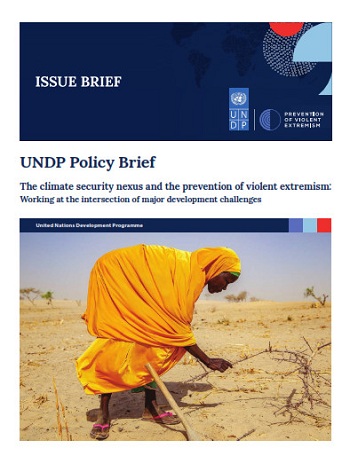The climate security nexus and the prevention of violent extremism: Working at the intersection of major development challenges

Introduction
The climate security nexus and the prevention of violent extremism
Many contexts which are highly exposed to climate change and possess the least capacity to respond, also suer from conflict and violent extremism. While empirical evidence does not demonstrate a linear or direct causal relationship between climate and conflict, or activity by violent extremist groups, there is an imperative to consider holistically the risk landscape and convergence, to avoid maladaptation. “Climate-related security risks” are understood as the adverse impacts of climate change on human security - the freedom from fear and want, but also as they relate to the security of the state, and the maintenance of international peace and security, under the United Nations Charter. The tackling of climate-related security risks represents, for UNDP, a strategic focus on delivering innovative and cross-cutting approaches to promote climate action and sustaining peace.
This policy brief explores initial lessons learnt from a climate security perspective of efforts to prevent violent extremism in politically and environmentally fragile contexts aected by climate change.
Detailed contents following attached file:
UNDP Policy Brief_ENG
UNDP Policy Brief_VN